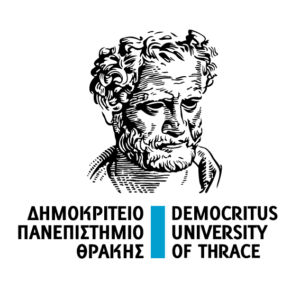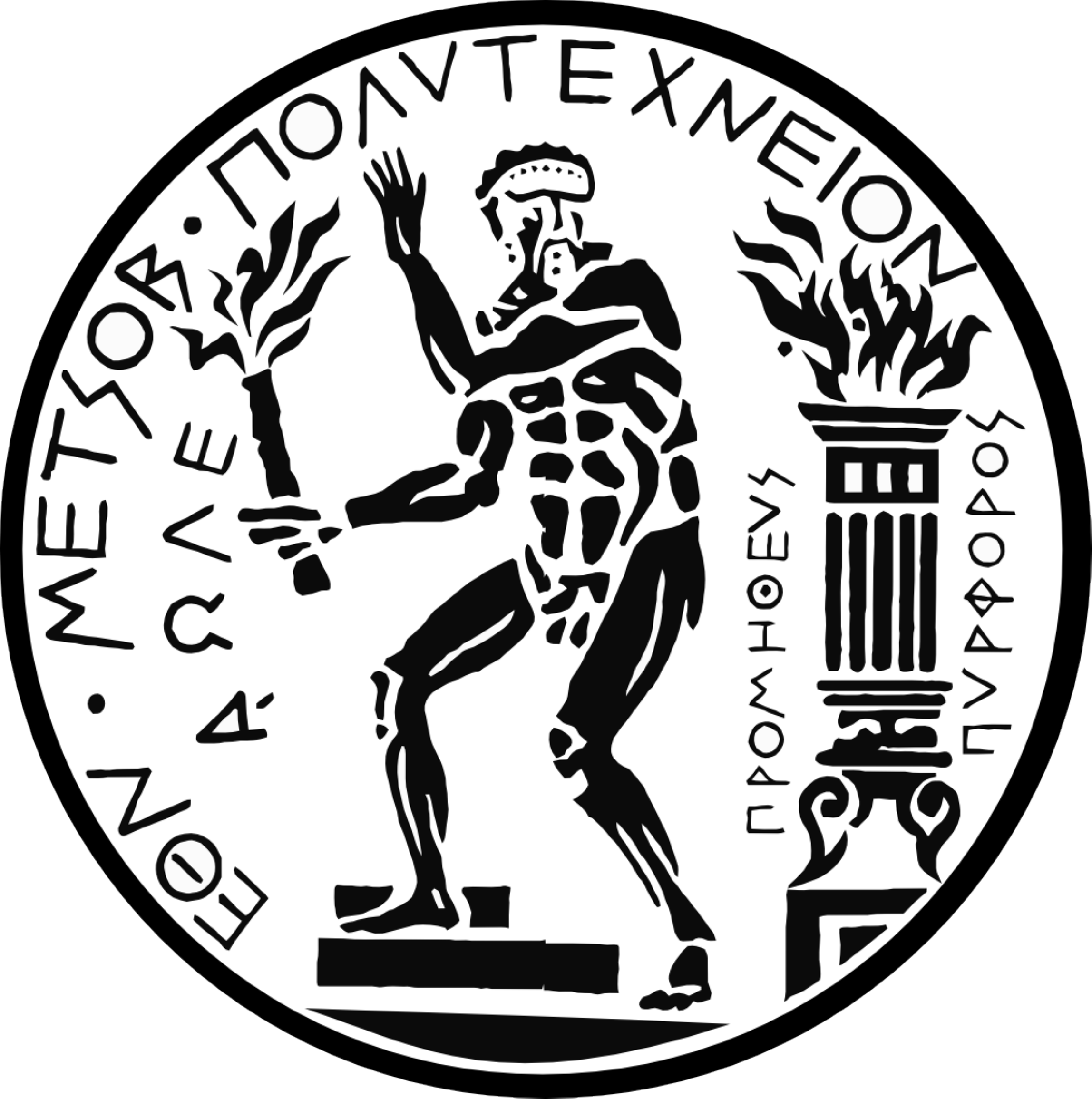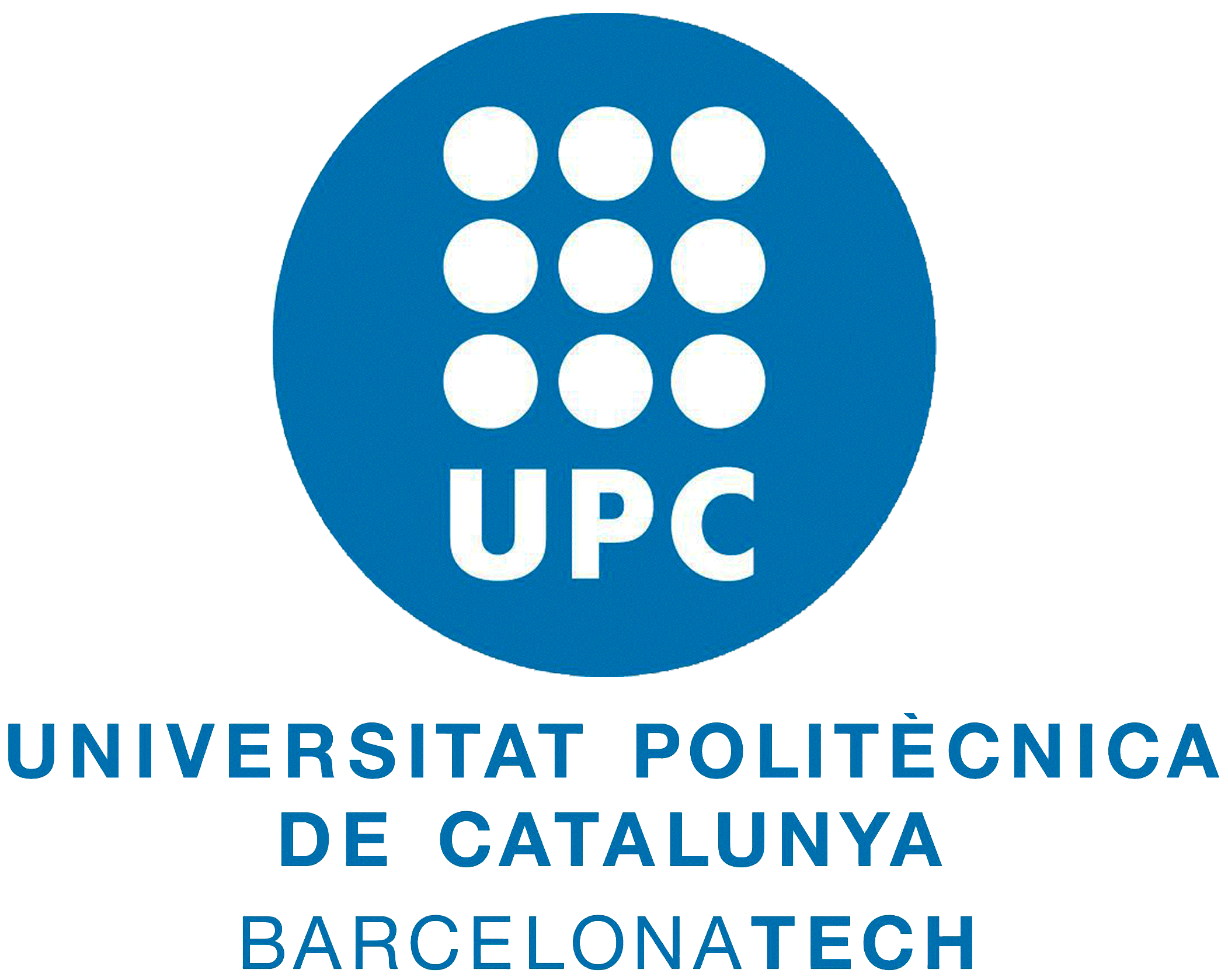Greek Organizations
Foreign Organizations
Democritus University of Thrace (DUTh)
Department of Electrical and Computer Engineering
Electronics Laboratory
 Democritus University of Thrace (DUTH) was established in
July 1973 by Legislative Decree No. 87 of 27 July 1973, and
started operating during the academic year 1974-1975. It
was named "Democritus" in honor of the ancient Greek
philosopher Democritus, who hailed from the town of Abdera
in Thrace.
The administration of DUTH is headquartered in Komotini,
which is the capital city of the Administrative Region of
Eastern Macedonia and Thrace.
The University is currently operating eight Faculties and
nineteen Schools in four cities of Thrace - eight in Komotini,
five in Xanthi, four in Alexandroupolis and two in Orestiada.
Overall, more than 15,000 students are studying at DUTH at
undergraduate and post-graduate level.
The University plays an important role in strengthening the
national and cultural identity of the region of Thrace, and
contributes to the high level of education in Greece. Relying
on the quality of teaching and research level, DUTH has
secured a place among the best Greek Universities.
As a Higher Education Institution, DUTH is a Public Entity
with complete autonomy that is supervised and funded by
the State through the Ministry of Education, Research and
Religious Affairs.
DUTH has participated/ is currently participating in several
EU-funded programmes, such as FP7 actions: (27; of which
4 are MSCA), H2020 actions: (10; one of which is a MSCA
and another two are in the Grant Preparation Phase), JUST
Action Grants: (2), Life actions: (1), Erasmus+ actions: (2),
Jean Monnet Chair (1) etc. Furthermore, the University is
participating in several bilateral and multilateral
cooperational programmes such as Transnational
Cooperation Programmes “MED”,"Black Sea","Balkan
–Mediterranean" and cross-border European Territorial
Cooperation Programme “Greece-Bulgaria” etc., as well as
national ones".
Democritus University of Thrace (DUTH) was established in
July 1973 by Legislative Decree No. 87 of 27 July 1973, and
started operating during the academic year 1974-1975. It
was named "Democritus" in honor of the ancient Greek
philosopher Democritus, who hailed from the town of Abdera
in Thrace.
The administration of DUTH is headquartered in Komotini,
which is the capital city of the Administrative Region of
Eastern Macedonia and Thrace.
The University is currently operating eight Faculties and
nineteen Schools in four cities of Thrace - eight in Komotini,
five in Xanthi, four in Alexandroupolis and two in Orestiada.
Overall, more than 15,000 students are studying at DUTH at
undergraduate and post-graduate level.
The University plays an important role in strengthening the
national and cultural identity of the region of Thrace, and
contributes to the high level of education in Greece. Relying
on the quality of teaching and research level, DUTH has
secured a place among the best Greek Universities.
As a Higher Education Institution, DUTH is a Public Entity
with complete autonomy that is supervised and funded by
the State through the Ministry of Education, Research and
Religious Affairs.
DUTH has participated/ is currently participating in several
EU-funded programmes, such as FP7 actions: (27; of which
4 are MSCA), H2020 actions: (10; one of which is a MSCA
and another two are in the Grant Preparation Phase), JUST
Action Grants: (2), Life actions: (1), Erasmus+ actions: (2),
Jean Monnet Chair (1) etc. Furthermore, the University is
participating in several bilateral and multilateral
cooperational programmes such as Transnational
Cooperation Programmes “MED”,"Black Sea","Balkan
–Mediterranean" and cross-border European Territorial
Cooperation Programme “Greece-Bulgaria” etc., as well as
national ones".
W-MEMPRO Members
Prof. Georgios Ch. Sirakoulis (PI)
Scientific Coordinator
Dr. Antisthenis Tsompanas
Post-doctoral researcher (Former Member)
Vasilis Ntinas
Post-doctoral researcher (Former Member)
Iosif-Angelos Fyrigos
Ph. D. Candidate
Rafailia-Eleni Karamani
Ph. D. Candidate
Karolos-Alexandros Tsakalos
Ph. D. Candidate
Theodoros-Panagiotis Chatzinikolaou
Ph. D. Candidate
National Technical University of Athens (NTUA)
Department of Physics
Electronic Nanomaterials and Devices Group
 Research activities of the group focus at the intersection of nanotechnology with electronics through the incorporation of nanostructures into electronic devices. Materials are grown using high vacuum technology while their patterning is performed either by optical or e-beam lithography. Processing equipment are located in a clean room laboratory operating since 2006 while device testing takes place in the electrical characterization laboratory. The group has participated in numerous national and European research projects (ICT, NMP, Marie-Curie) and has recently been awarded an Excellence (Aristeia II) project.
Research activities of the group focus at the intersection of nanotechnology with electronics through the incorporation of nanostructures into electronic devices. Materials are grown using high vacuum technology while their patterning is performed either by optical or e-beam lithography. Processing equipment are located in a clean room laboratory operating since 2006 while device testing takes place in the electrical characterization laboratory. The group has participated in numerous national and European research projects (ICT, NMP, Marie-Curie) and has recently been awarded an Excellence (Aristeia II) project.
We investigate the physics and technology of resistive memories (ReRAM) based on metal oxides formed either from continuous thin films or nanoparticle assemblies. The material and device fabrication is performed in a high vacuum system in the Clean Room Laboratory of the Dept. of Physics of NTUA. We perform electrical characterization of the device as well as material characterization.
W-MEMPRO Members
Prof. Dimitris Tsoukalas
Scientific Coordinator
Stavros Kitsios
Ph. D. Candidate
University of the West of England, Bristol (UWE)
Department of Computer Science
Unconventional Computing Laboratory
 The Unconventional Computing Laboratory was founded by Prof Andy Adamatzky in 2001 as a response to an urgent need to develop computers for next century. We employ complex dynamics in physical, chemical and biological media to design novel computational techniques, architectures and working prototypes of non-linear media based computers. The research is based on an interdisciplinary cooperation in modelling and experimental verification of novel principles of information processing and analysis in uniform distributed large-scale chemical and physical systems. We apply these novel principles to the design of working prototypes of massively parallel computing devices with intrinsic functions that exploit the complex dynamics of non-linear systems.
The Unconventional Computing Laboratory was founded by Prof Andy Adamatzky in 2001 as a response to an urgent need to develop computers for next century. We employ complex dynamics in physical, chemical and biological media to design novel computational techniques, architectures and working prototypes of non-linear media based computers. The research is based on an interdisciplinary cooperation in modelling and experimental verification of novel principles of information processing and analysis in uniform distributed large-scale chemical and physical systems. We apply these novel principles to the design of working prototypes of massively parallel computing devices with intrinsic functions that exploit the complex dynamics of non-linear systems.
W-MEMPRO Members
Prof. Andrew Adamatzky
Scientific Coordinator
Technische Universität Dresden (TUD)
Institute of Principles of Electrical and Electronic Engineering
Chair of Fundamentals of Electrical Engineering
 The Chair of Fundamentals of Electrical Engineering imparts knowledge, methods and tools in the foundational and the major course of studies of Electrical Engineering, Mechatronics, Information Systems Technology and Regenerative Energy Systems.
The Chair of Fundamentals of Electrical Engineering imparts knowledge, methods and tools in the foundational and the major course of studies of Electrical Engineering, Mechatronics, Information Systems Technology and Regenerative Energy Systems.
The research of the chair focuses on methods for modeling and simulation of complex systems. The main focus of the working group is on cellular non-linear networks (CNN), reaction diffusion networks, memristors and Volterra systems for the solution of interdisciplinary problems, in particular biomedical signal and image processing.
The Chair of Fundamentals of Electrical Engineering deals with the investigation and application of complex systems, biomedical signal processing, the research of novel nanostructures (memristors) and the development of highly parallel digital processors.
The working group’s research focuses on methods for modelling and simulation of complex systems, primarily electronic circuits. Based on the basic theoretical assessment of the properties of such systems, the dynamic behaviour in particular is used in the investigations for the development of methods for information processing.
W-MEMPRO Members
Prof. Ronald Tetzlaff
Scientific Coordinator
Universitat Politècnica de Catalunya (UPC)
Department of Electronic Engineering
High Performance Integrated Circuits and Systems Design Group (HIPICS)
 The High Performance Integrated Circuits and Systems Design Group (HIPICS) is part of the Department of Electronic Engineering and is located in buildings C4 and C5 of the Campus Nord of the Universitat Politècnica de Catalunya (UPC), BarcelonaTech in Barcelona.
The High Performance Integrated Circuits and Systems Design Group (HIPICS) is part of the Department of Electronic Engineering and is located in buildings C4 and C5 of the Campus Nord of the Universitat Politècnica de Catalunya (UPC), BarcelonaTech in Barcelona.
Its activity is focused in advanced topics of integrated electronic devices, circuits and systems related with technology limitations, second order effects and new technologies. The main research topics are:
- process variations and noise aware digital design
- analog and RF design techniques for deep-submicron and nanometer scale technologies
- signal integrity and substrate noise effects on mixed-signal ICs
- thermal testing of digital, analog and RF integrated circuits
- design of RF, UWB and mmW integrated circuits
- energy harvesting for ultra low power systems
HIPICS group has obtained the mention "Grup de Recerca Consolidat" by the Generalitat de Catalunya since 2005.
The group faculty teaches in the Telecommunications Faculty and also in the Doctorate Program of the Electronic Engineering Department.
